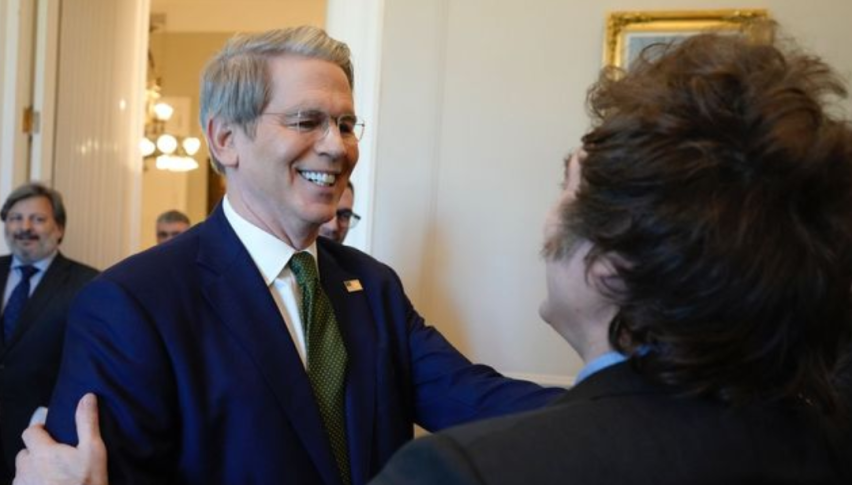Historic: U.S. Reaches Major Trade Agreement with Argentina
For Milei, the deal is also a political victory: it strengthens his alignment with Washington and consolidates him as one of Trump’s allies.

Quick overview
- The United States and Argentina have announced a significant trade pact aimed at reducing tariffs and removing barriers to strengthen their economic relationship.
- The agreement, which will be finalized soon, supports President Javier Milei's economic reform agenda and aligns with broader U.S. strategic interests in Argentina.
- Key provisions include preferential market access for U.S. exports and commitments to eliminate non-tariff barriers and enhance agricultural market access.
- The deal also emphasizes cooperation on critical minerals and stabilizing the global soybean market.
Both countries moved forward on the most significant trade pact in decades, featuring tariff reductions, the removal of barriers, agricultural market openings, and regulatory alignment. The agreement strengthens the strategic alliance between Washington and Buenos Aires.

In an announcement that reshapes and consolidates the bilateral economic relationship, the United States on Thursday unveiled a broad trade and investment agreement with Argentina aimed at opening markets, reducing barriers, and aligning key regulations to facilitate the exchange of goods, services, and capital between the two countries.
The deal—set to be signed once the final text is completed—marks the most expansive commercial breakthrough between the two governments in decades and formalizes Washington’s support for the economic reform agenda of President Javier Milei.
The so-called “Framework Agreement on Reciprocal Trade and Investment” fits into Donald Trump’s significantly broader strategic bet on Argentina. In recent weeks, the U.S. has agreed to a USD 20 billion currency swap with Argentina (partially activated), encouraged the possibility of an additional USD 20 billion in financing from U.S. banks, and even stepped in to buy pesos directly to stem the loss of reserves and bolster the Milei administration ahead of the October 26 midterm elections.
For Milei, the deal is also a political victory: it strengthens his alignment with Washington and consolidates him as one of Trump’s closest allies on the global stage.
The agreement includes a series of concrete commitments. Argentina will grant preferential market access to a wide range of U.S. exports, from pharmaceuticals, chemicals, and machinery to technology, medical devices, vehicles, and agricultural commodities.
Key provisions of the agreement include:
1) Tariffs:
Argentina will grant preferential access to U.S. products such as pharmaceuticals, chemicals, machinery, IT equipment, medical devices, vehicles, and a broad range of agricultural goods. In return, the United States will remove reciprocal tariffs on certain natural resources not available domestically and non-patented pharmaceutical inputs. U.S. officials also stated that “both countries have committed to improving bilateral and reciprocal market access for beef.”
2) Elimination of non-tariff barriers:
The U.S. emphasized that Argentina will continue eliminating non-tariff barriers, commit to waiving consular formalities for imports, and gradually phase out the statistical tax applied to U.S. products.
3) Agricultural market access:
Argentina opened its market to live U.S. cattle, agreed to allow U.S. poultry imports within one year, and pledged not to restrict products that use certain cheese and meat denominations. Argentina will also streamline registration processes for U.S. beef, meat products, offal, and pork, and will not require facility registration for U.S. dairy imports.
4) Investment in critical minerals and cooperation on stabilizing the global soybean market.
- Check out our free forex signals
- Follow the top economic events on FX Leaders economic calendar
- Trade better, discover more Forex Trading Strategies
- Open a FREE Trading Account
- Read our latest reviews on: Avatrade, Exness, HFM and XM